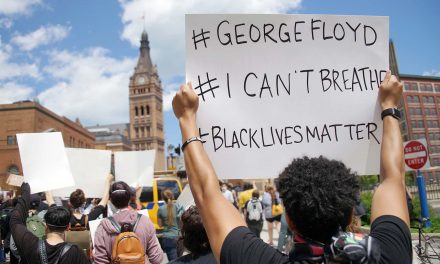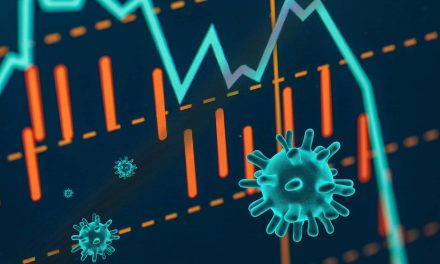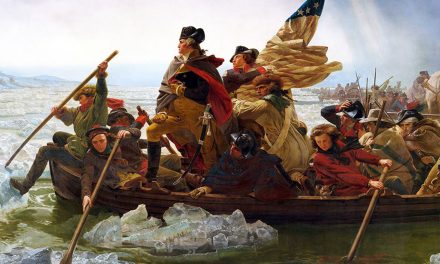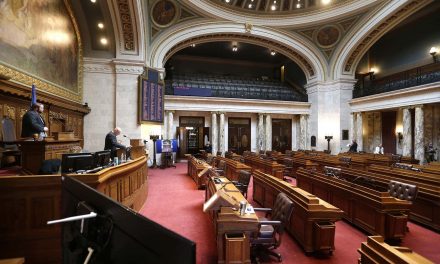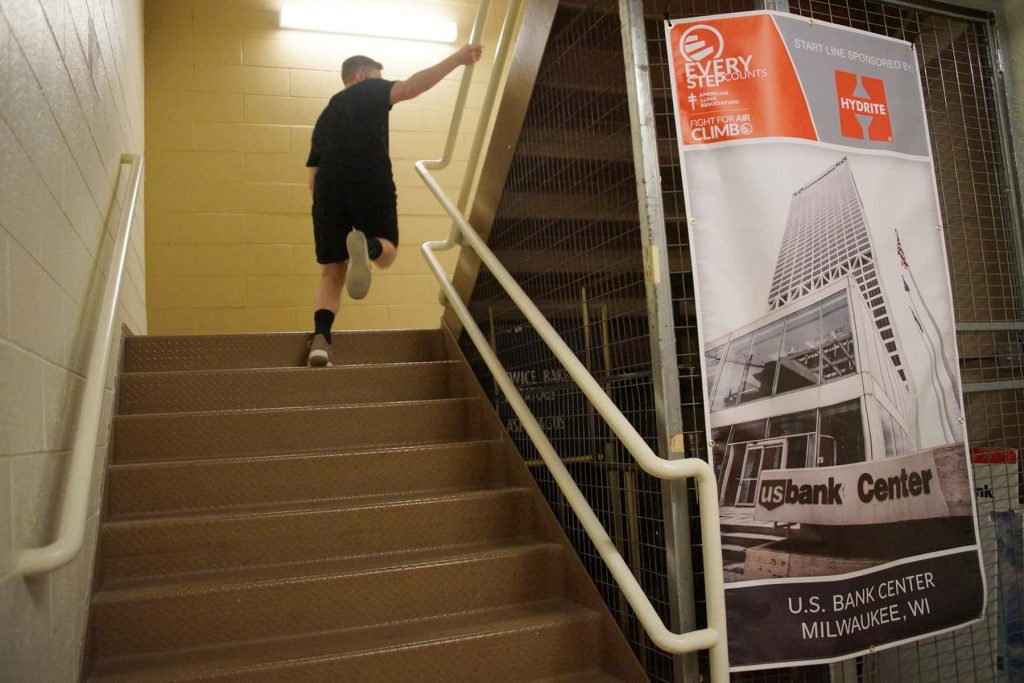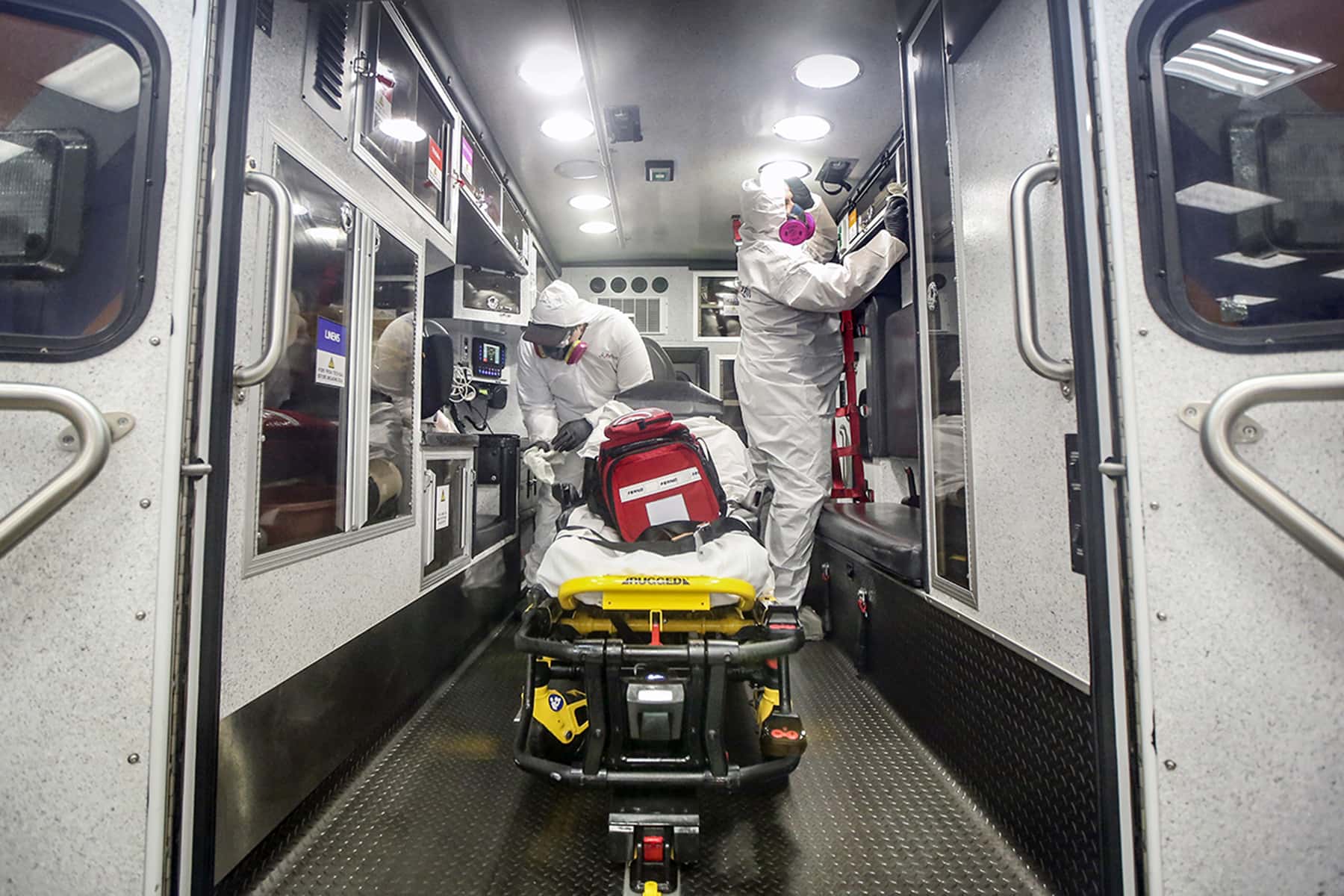
After several years of troop drawdowns, the country is back to waging rather than ending war.
True to precedent, the enemy was unknown to most Americans mere weeks before the conflict began. Only on February 11 did the World Health Organization name the COVID-19 virus now on everybody’s figurative lips. Five weeks later, President Donald J. Trump proclaimed himself a “wartime president.” Soon after came the U.S. Surgeon General’s warning declaring the COVID-19 outbreak a modern Pearl Harbor moment, or a new 9/11.
Democrats, too, have rallied around the metaphor of war. As Susan E. Rice, Barack Obama’s national security adviser from 2013 to 2017, wrote on April 8, “Mr. Trump is correct: This is war, the most consequential since World War II.” Rice expressed no confidence in Trump’s fitness to prosecute what she called “the viral version of World War III.”
Metaphors do not just describe reality; they help create it. For years we have seen the casual employment of “war” language in addressing domestic social challenges: the “War on Poverty,” the “War on Drugs,” the “War on Crime.” In every case, the war metaphor diverted attention and resources from the activation of Americans’ diverse talents and energies to the concentration of power and the search for enemies.
We need a different way to name the type of partnership among self-governing citizens, and between them and their governments, that this crisis—and democracy itself—demands: a “we-the-people” partnership for strong, inclusive communities that must take the form of work.
The dangers of the war metaphor and war mentality in this latest crisis are by now clear. President Trump’s call for shared “sacrifice” and “devotion” in the battle against COVID-19 was soon followed by the firing of administration watchdogs; suspension of environmental regulations; and attacks on reporters who ask tough questions. After asserting his “total” personal authority over the states in a national emergency, Trump now challenges Americans to act like “warriors,” sacrificing lives to reopen the economy.
Meanwhile, the xenophobes have mounted their chargers across the country. Asian Americans are targeted as carriers of the novel coronavirus. It is time to stop waging war and get back to work.
Yes, work. Work was once the master metaphor of American democracy. According to Gordon Wood, in his field-shaping work on The Creation of the American Republic, when the Founders classical ideals of virtue failed to knit the newly independent states into a unified society, Americans “found new democratic adhesives in the actual behavior of plain ordinary people”—most of whom spent most of their time and put much of their pride in working.
In the emerging nation, public goods such as schools, libraries, wells, roads, and bridges were created by groups of citizens, joining self-interests with public purpose. As David Mathews, president of the Kettering Foundation, has observed: “Nineteenth-century self-rule… was a sweaty, hands-on, problem-solving politics… rooted in collective decision making and acting—especially acting.”
Some of that collective work was devastatingly destructive, especially of Indigenous lives and cultures. But the story of constructive world-building that Mathews tells must also be recalled. “Settlers on the frontier had to be producers, not just consumers. Their efforts were examples of ‘public work,’ meaning work done by not just for the public.”
The public-work ethos survived into the next century. A call to public work was central to pragmatist philosopher William James’ famous proposal for a “moral equivalent of war.” James envisioned a national service corps to foster the “civic passion” of young people, not merely to give them jobs, make them employable, or cultivate their sense of noblesse oblige—much less forge them into bellicose nationalists.
James’s corps would open young people’s eyes to the “hard and sour foundations” of arrangements they took for granted, and train them not in the arts of war but the virtues of democracy: empathy, tolerance, inventiveness, cooperation, and fidelity to the nation that valued such ideals by building a commonwealth—a more perfect union—to foster them.
Through the first half of the 20th century, similar public-work visions inspired consequential efforts to create that more perfect union, from the New Deal’s Civilian Conservation Corps to the citizenship schools of the civil rights movement. Over recent decades, however, the connection of daily work to democratic citizenship has disappeared.
When John F. Kennedy announced VISTA as a means for Americans to serve their country rather than asking it to serve them, he contrasted the idealism of service, as he saw it, with the instrumental character of work. This view, rooted in a strand of classical Greek thought that maligned labor and commerce as publicly corrupting, has never been wholly absent from American culture. Our current era, however, is notable for its ignorance of the generations of Americans who understood that a commonwealth requires creating.
Today, citizenship is most often reduced to volunteerism and voting. But there is widespread hunger in America for work that is personally rewarding and publicly meaningful. A 2018 study in the Harvard Business Review found that 9 of 10 Americans surveyed were willing to earn less money to do work that makes a contribution to society.
This is welcome news. When the virus passes, the problems of poverty, inequality, and fragile public health will remain, as will mounting challenges such as climate change. It will fall to the whole people to see that they are addressed, both through their own efforts and by insisting that governments become partners in their mission.
Anticipating this need, a group in the Centers for Disease Control and Prevention is developing a “Blueprint for Community Recovery,” based on a decade of experiments to boost well-being in diverse communities through citizen-empowering, citizen-driven work. They plan for wide citizen input to fashion a national vision and practical ideas for creating strong, inclusive communities, made resilient through what one key leader Bobby Milstein calls the “civic muscle-building” potential of residents’ daily activities.
Even now there is evidence that the crisis is generating a new respect for the public value of everyday work. Americans are realizing that they are surrounded by “essential workers” who continue cleaning corridors, stocking shelves, driving trucks, and keeping us alive and sane. But to celebrate such work as war efforts is a profound mistake.
War defines citizenship in terms of altruistic service to the collective, hiding the constant negotiation of personal and public interests that democracy requires. Wars target enemies and accrue authority to the state. They marginalize vulnerable communities and disenfranchise the people writ large. Above all, wars are waged in hopes of their ending.
Citizenship is not a task to be completed. It is continuous, difficult, often frustrating, yet inherently dignified, personally rewarding, and publicly meaningful work. In this vein, we need to decommission the war metaphor and reach instead for what Langston Hughes called “Freedom’s Plow”:
Out of labor—white hands and black hands
Came the dream, the strength, the will,
And the way to build America.
… America!
Land created in common,
Dream nourished in common,
Keep your hand on the plow! Hold on!
Jоhn Pаrаskеvаs
Originally published by YES! Magazine as War Is a Poor Metaphor for This Pandemic

